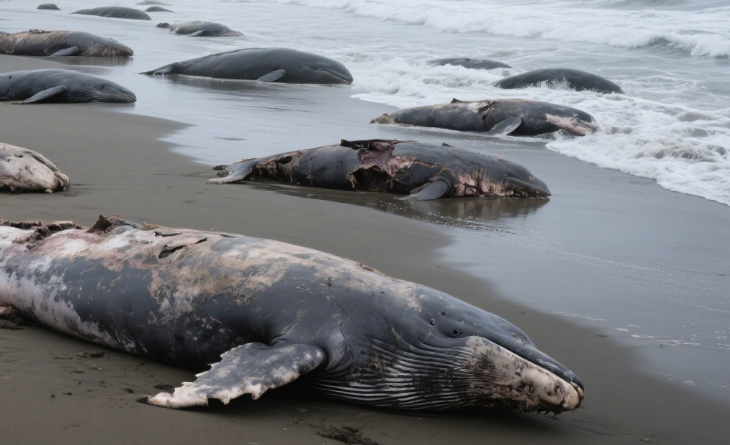In August 2025, the carcasses of 23 pilot whales were discovered on the beach of the remote Scottish island of Sande Island. The group included a 7-meter-long male whale, calves, and a pregnant female. The bodies had been decomposing for several days, with the estimated time of death exceeding 72 hours. This tragedy follows last year’s mass stranding of 77 pilot whales on the same island. Autopsies revealed elevated heavy metal levels in some whales’ livers, coinciding with areas of North Sea oil spill contamination. Additionally, a 3°C rise in surface water temperatures across the North Atlantic forced the pod to alter its migration route, leading them astray onto unfamiliar shallow waters. Pilot whales rely on sonar for navigation, but Sandy Island’s sandy seabed weakened sound reflections, creating an “acoustic blind spot.” Errors in decision-making by the lead whale triggered a chain reaction. Rescue workers discovered a fully formed fetus inside one female whale, its life abruptly ended on the shoal, highlighting the cruelty of this ecological crisis.

Leave a Reply